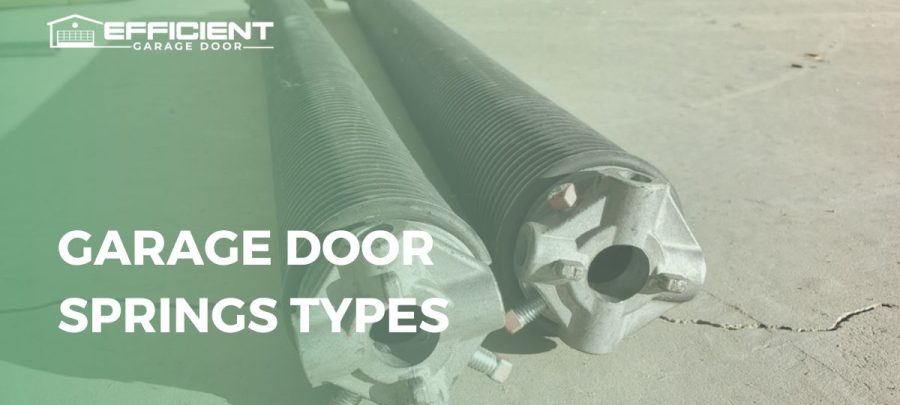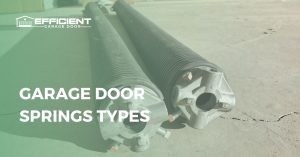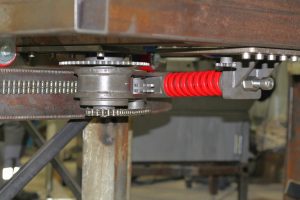Garage doors play a crucial role in safeguarding our homes and belongings, and one of the key components that enable their smooth operation is the springs. Garage door springs are responsible for counterbalancing the door’s weight, making it easy to open and close. However, not all springs are created equal. In this guide, we’ll explore the different Garage Door Springs Types, their characteristics, and how to choose the right one for your needs.
Torsion Springs
Torsion springs are the most common type used in modern garage doors. They are mounted horizontally above the door and are characterized by tight coils. Torsion springs store energy by twisting or winding, and this stored energy is what helps lift the heavy garage door.
These springs are known for their durability and smooth operation. They provide better balance and control over the door’s movement. Torsion springs are available in various sizes and strengths to accommodate different garage door weights and sizes.
Extension Springs
Extension springs are mounted on either side of the garage door and stretch along the horizontal tracks. They work by extending and contracting as the door moves. Unlike torsion springs, extension springs are more visible, as they are located on the sides of the door.
Extension springs are generally used in lighter and single-car garage doors. While they are less expensive than torsion springs, they wear out faster due to their exposed nature and frequent stretching and contracting.
Hybrid Springs
As the name suggests, hybrid springs combine elements of torsion and extension springs. They are designed to provide the benefits of both types while minimizing their drawbacks. Hybrid springs are typically used when there are space limitations or when installing traditional torsion springs is difficult.
These springs offer good balance and smoother operation compared to pure extension springs. They are also less exposed than extension springs, which can extend their lifespan.
Wayne Dalton TorqueMaster Springs
Wayne Dalton TorqueMaster springs are a unique type of spring system used in Wayne Dalton garage doors. Instead of a traditional spring system, these springs are housed in a steel tube above the garage door. The design reduces the risk of injury from a broken spring and provides a clean look.
While TorqueMaster springs offer certain safety benefits, they are specific to Wayne Dalton doors and may be more challenging to repair or replace than standard torsion or extension springs.
Choosing the Right Springs
Selecting the right Garage Door Springs Types is crucial for your garage door’s smooth and safe operation. Several factors should be considered when making your decision:
Door Weight and Size: The weight and size of your garage door will determine the type and strength of springs required. Heavier doors will generally require stronger springs.
Space Constraints: If your garage has limited headroom or side room, hybrid springs or Wayne Dalton TorqueMaster springs may be suitable options.
Longevity and Maintenance: Torsion springs tend to last longer and require less maintenance than extension springs. Consider your long-term maintenance preferences.
Safety Considerations: If safety is a primary concern, Wayne Dalton TorqueMaster springs may be a good choice due to their enclosed design.
Professional Installation: Regardless of the type of springs you choose, it’s highly recommended to have them installed and maintained by a professional garage door technician. Working with springs can be dangerous, and improper installation can lead to accidents.
Conclusion
Understanding the different Garage Door Springs Types is essential for deciding which type is best suited for your garage door. Whether you opt for the durability of torsion springs, the simplicity of extension springs, the versatility of hybrid springs, or the safety features of Wayne Dalton TorqueMaster springs, proper installation and maintenance are key to ensuring your garage door operates smoothly and safely for years to come. When in doubt, consult a professional garage door technician who can assess your specific needs and recommend the ideal spring type for your garage door.







